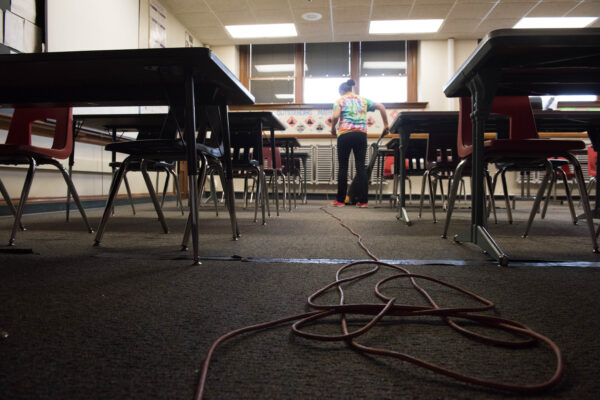Marriage equality came to the U.S. when the Supreme Court handed down the Obergefell v Hodges decision. This ruling was the culmination of decades of effort by lesbian, gay and bisexual communities to be viewed with equal dignity and respect by our society. That victory didn’t come without first winning the hearts and minds of more than 60 percent of the American public.
This is an enormous cultural shift, but equality is an ever-evolving process. Thus, while an historic win is now in the books, the question of lived equality must come to the forefront. The transgender community will be pivotal in the continued fight for social, economic and cultural equality.
Transgender people here in Michigan and other states are inarguably among the most at-risk segments of our society. According to the report “Injustice at Every Turn,” transgender Americans—particularly transgender women of color—face rates of violence, poverty, unemployment, homelessness, and suicide that are unthinkable for most Americans. If we are to stem the staggering tide of discrimination and violence my community faces, transgender people too must win the hearts and minds of the American public. We must amplify the cries of a community that has struggled to be heard.
And that’s why the Transgender Advocacy Project was conceived—to lift up the voices of everyday transgender Michiganders.
Estimates vary but, conservatively, between .3 and 1 percent of the U.S. population identifies as transgender. That means that, every day, between 30,000 and 100,000 people in Michigan face the daunting task of confronting a world that is still largely hostile to their existence.
Think about that for a moment: In a population this large, there is power—especially in its stories. Stories of struggle and resilience; of exhilarating triumph and terrible tragedy; of simple-yet-powerful hopes and dreams and aspirations—transgender people’s stories need to be heard. They need to be heard by our friends and our co-workers, by the media and our policymakers.
The Transgender Advocacy Project is designed to help Michigan’s transgender residents utilize their experiences to educate the rest of our state about who they are and why their lives matter and to advocate both for themselves and for their community.
Sometime in the 1990s, the “T” began to show up in the alphabet used by what was once mostly the “LGB” equality movement. Now, it’s well past time to put the T in equality—and recent polling suggests that we may have an unprecedented chance to seize that time.
The numbers of Americans who know trans people are on the rise. Perhaps more importantly, that same polling also suggests that once people know a trans person, hear that person’s story and understand what being transgender is about, they overwhelmingly support efforts to treat trans people fairly and equally. It’s clear: Once you get to know a transgender person, you understand that we share the values, hopes and dreams that most other people harbor. The cultural shift is coming for the transgender community, too. We can make that 60 percent a reality if we use our voices together.
That’s what the Transgender Advocacy Project is all about—making trans voices heard.
By Amy Hunter
Amy Hunter is the Transgender Advocacy Project Coordinator
(Pictured: Amy Hunter)

